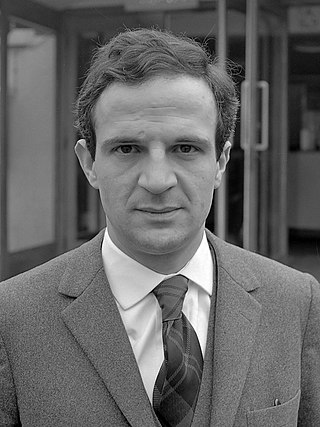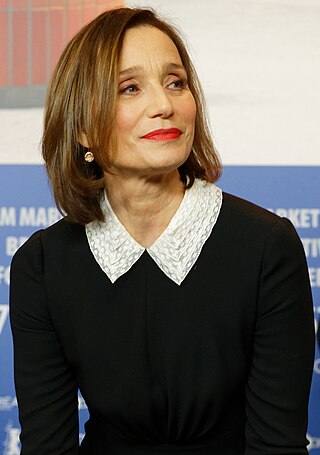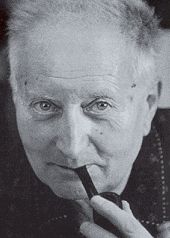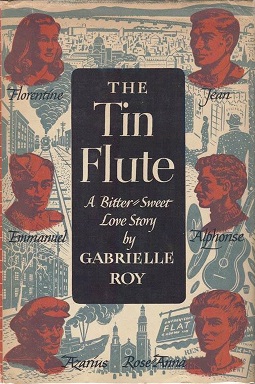
François Roland Truffaut was a French filmmaker, actor, and critic, widely regarded as one of the founders of the cinematic French New Wave. With a career of more than 25 years, he is an icon of the French film industry.

Simone Lucie Ernestine Marie Bertrand de Beauvoir was a French existentialist philosopher, writer, social theorist, and feminist activist. Though she did not consider herself a philosopher, nor was she considered one at the time of her death, she had a significant influence on both feminist existentialism and feminist theory.

Jean-Pierre Jeunet is a French filmmaker. His films combine fantasy, realism, and science fiction to create idealized realities or to give relevance to mundane situations.

Audrey Justine Tautou is a French actress. She made her acting debut at age 18 on television, and her feature film debut in Venus Beauty Institute (1999), for which she received critical acclaim and won the César Award for Most Promising Actress.

Dame Kristin Ann Scott Thomas is a British actress. A five-time BAFTA Award and Olivier Award nominee, she won the BAFTA Award for Best Actress in a Supporting Role for Four Weddings and a Funeral (1994) and the Olivier Award for Best Actress in 2008 for the Royal Court revival of The Seagull. She was nominated for the Academy Award for Best Actress in The English Patient (1996).

A Very Long Engagement is a 2004 romantic war drama film, co-written and directed by Jean-Pierre Jeunet and starring Audrey Tautou, Gaspard Ulliel and Marion Cotillard. It is a fictional tale about a young woman's desperate search for her fiancé who might have been killed during World War I. It was based on the 1991 novel of the same name by Sébastien Japrisot. The film is a co-production between France and the United States. It was released theatrically in France on 27 October 2004 and in the United States on 26 November 2004.

Jean Giono was a French writer who wrote works of fiction mostly set in the Provence region of France.

Louis Garrel is a French actor and filmmaker. He is best known for his starring role in The Dreamers, directed by Bernardo Bertolucci. He has regularly appeared in films by French director Christophe Honoré, including Ma Mère, Dans Paris, Love Songs, The Beautiful Person and Making Plans for Lena. He has also been in films directed by his father, Philippe Garrel, including Regular Lovers, Frontier of the Dawn, A Burning Hot Summer, and Jealousy.

Paul et Virginie is a novel by Jacques-Henri Bernardin de Saint-Pierre, first published in 1788. The novel's title characters are friends since birth who fall in love. The story is set on the island of Mauritius under French rule, then named Île de France. Written on the eve of the French Revolution, the novel is recognized as perhaps Bernardin's finest work. It records the fate of a child of nature corrupted by the artificial sentimentality of the French upper classes in the late eighteenth century. Bernardin de Saint-Pierre lived on the island for a time and based part of the novel on a shipwreck he witnessed there.
Jean-Patrick Manchette was a French crime novelist credited with reinventing and reinvigorating the genre. He wrote ten short novels in the seventies and early eighties, and is widely recognized as the foremost French crime fiction author of that period. His stories are violent explorations of the human condition and French society. Manchette was politically to the left and his writing reflects this through his analysis of social positions and culture.

Jean-Philippe Toussaint is a Belgian novelist, photographer and filmmaker. His books have been translated into more than twenty languages and he has had his photographs displayed in Brussels and Japan. Toussaint won the Prix Médicis in 2005 for his novel Fuir, the second volume of the « Cycle of Marie », a four-tome chronicle published over ten years and displaying the separation of Marie and her lover. His 2009 novel La Vérité sur Marie, third volume of the cycle, won the Prix Décembre.
Jacques Laurent or Jacques Laurent-Cély was a French writer and journalist. He was born in Paris, the son of a barrister. During World War II, he fought with the Algerian Tirailleurs.

The Tin Flute is the first novel by Canadian author Gabrielle Roy and a classic of Canadian fiction. Imbued with Roy's brand of compassion and understanding, this story focuses on a family in the Saint-Henri slums of Montreal, its struggles to overcome poverty and ignorance, and its search for love.

Le Bonheur ("Happiness") is a 1965 French drama film directed by Agnès Varda. The film is associated with the French New Wave and won two awards at the 15th Berlin International Film Festival, including the Jury Grand Prix.
Jean Vautrin, real name Jean Herman, was a French writer, filmmaker and film critic.

School for Love is a 1955 French drama film directed by Marc Allégret, written by Marc Allégret, and starring Brigitte Bardot and Jean Marais. The screenplay, based on a novel by Vicki Baum was adapted for the screen by Allégret.
katherena vermette is a Canadian writer, who won the Governor General's Award for English-language poetry in 2013 for her collection North End Love Songs. Vermette is of Métis descent and originates from Winnipeg, Manitoba. She was an MFA student in creative writing at the University of British Columbia.

Jenny Han is an American author, screenwriter, executive producer, and showrunner. She is best known for writing The Summer I Turned Pretty trilogy, which she adapted into a TV series for Prime Video. She also wrote the To All the Boys trilogy which was adapted into a Netflix film series.

Lovers Are Never Losers is a 1929 novel by the French writer Jean Giono. It tells a love story set in rural France in the early 20th century. It is the standalone second entry in Giono's Pan trilogy; it was preceded by Colline and followed by Second Harvest. It was published in English in 1931, translated by Jacques Le Clercq.

In genre studies, a coming-of-age story is a genre of literature, theatre, film, and video game that focuses on the growth of a protagonist from childhood to adulthood, or "coming of age". Coming-of-age stories tend to emphasize dialogue or internal monologue over action and are often set in the past. The subjects of coming-of-age stories are typically teenagers. The Bildungsroman is a specific subgenre of coming-of-age story.
















